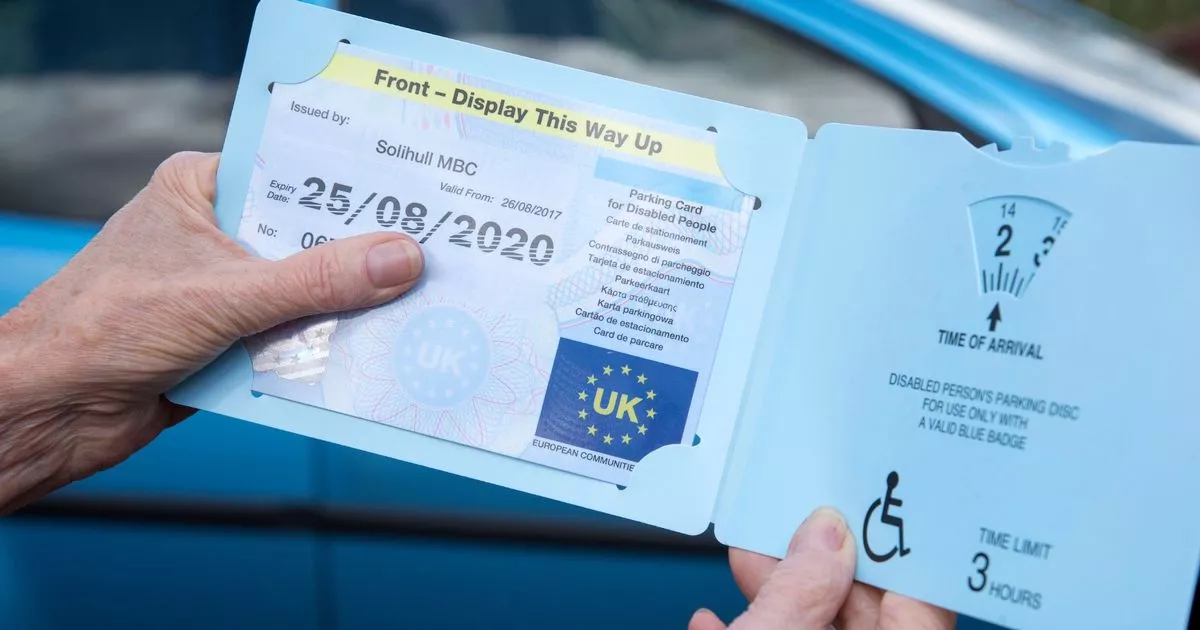Arthritis is a common condition that causes pain and inflammation in a joint.
It can significantly impact a person’s mobility and quality of life, making everyday tasks challenging. For those living with arthritis, the Blue Badge scheme can provide much-needed support by allowing them to park closer to their destinations. This article explores the eligibility criteria for obtaining a Blue Badge with arthritis, the application process, and key considerations.
Understanding the Blue Badge Scheme
The Blue Badge scheme provides parking benefits for individuals with severe mobility issues, allowing them to park closer to their destinations. This can be a significant aid for individuals with arthritis, helping them to maintain independence and access essential services and amenities more easily.
Eligibility Criteria
Arthritis itself does not automatically qualify an individual for a Blue Badge. However, the severity of the condition and its impact on mobility can make a person eligible. Here are some key points to consider:
- Difficulty Walking: If arthritis causes severe pain, stiffness, or other symptoms that make walking difficult, you may be eligible.
- Use of Mobility Aids: If you need a mobility aid or assistance from another person to walk, this supports your application.
- Impact on Daily Activities: The condition’s overall impact on your ability to perform daily activities can also be a factor.
Support from Benefits
If you are already claiming benefits such as Attendance Allowance or Personal Independence Payment (PIP), this can support your Blue Badge application. These benefits indicate that you have significant mobility issues, which strengthens your case for needing a Blue Badge. Here are the primary benefits that can aid your application:
- Attendance Allowance: This benefit is for people over the state pension age who have a physical or mental disability that makes it difficult to look after themselves. If you receive this allowance, it can support your Blue Badge application.
- Personal Independence Payment (PIP): If you receive PIP and score 8 points or more in the ‘moving around’ activity, you may automatically qualify for a Blue Badge.
Application Process
Applying for a Blue Badge involves several steps, and providing detailed medical evidence is crucial. Here’s how to apply:
- Gather Medical Evidence: Collect medical records, letters from healthcare providers, and any other documentation that details your diagnosis and the impact of arthritis on your mobility.
- Complete the Application Form: Fill out the Blue Badge application form, providing detailed information about your condition and how it affects your daily life. You can apply online or request a paper form from your local council.
- Submit Supporting Documents: Along with the application form, submit your medical evidence and any other required documents.
- Pay the Application Fee: There may be a small fee for applying, which varies by local council.
- Attend an Assessment: Your local council may require a mobility assessment to determine your eligibility. This involves meeting with a healthcare professional who will evaluate your condition.
What to Expect After Applying
Once you submit your application, the local council will process it, which can take up to 12 weeks or longer. Here’s what you can expect:
- Notification of Decision: You will receive a letter informing you of the outcome of your application. If successful, you will be issued a Blue Badge.
- Review Process: If your application is denied, you can request a review if you believe not all the information was considered.
- Reapplication: If your condition worsens or you become automatically entitled, you can reapply for a Blue Badge.
For more detailed information on Blue Badge eligibility and related conditions, visit the following articles on our website:
Common Questions and Misconceptions
1. Can arthritis automatically qualify me for a Blue Badge?
No, arthritis does not automatically qualify for a Blue Badge. Eligibility is based on the severity of symptoms and their impact on your mobility.
2. What kind of medical evidence is needed for a Blue Badge application?
You need detailed medical records, letters from healthcare providers, and any other documentation that explains your diagnosis and how it affects your mobility.
3. How long does it take to get a decision on a Blue Badge application?
The process can take up to 12 weeks or longer, depending on your local council and if additional assessments are required.
While arthritis does not automatically qualify an individual for a Blue Badge, the condition’s impact on mobility can support an application. By providing comprehensive medical evidence and clearly detailing how arthritis affects your daily life, you can improve your chances of obtaining a Blue Badge. For more information on the application process and eligibility criteria, visit our additional resources linked above.
Understanding the requirements and preparing a thorough application will help you navigate the process successfully, ensuring you receive the support and benefits provided by the Blue Badge scheme.

